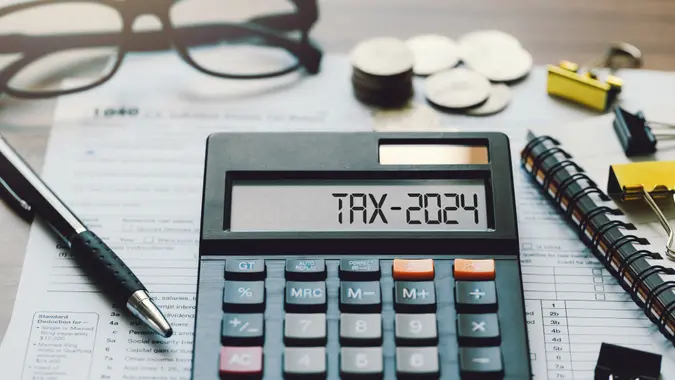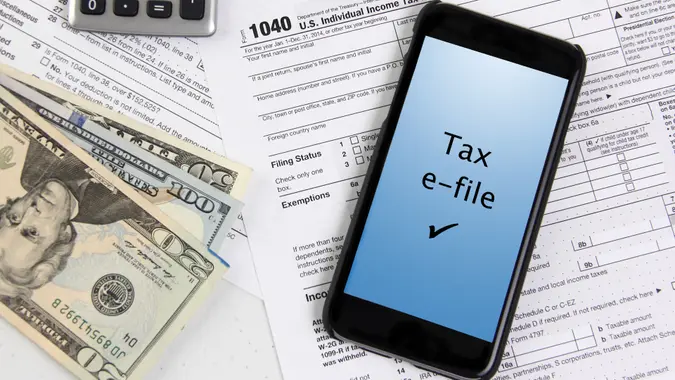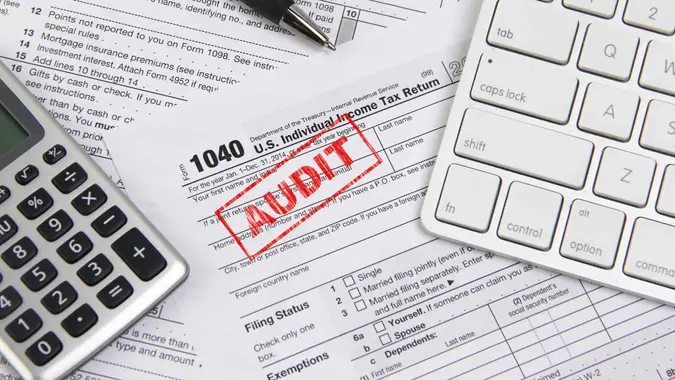More Than Half Are Expecting the Same Tax Refund This Year — How Much Did They Actually Get?

Commitment to Our Readers
GOBankingRates' editorial team is committed to bringing you unbiased reviews and information. We use data-driven methodologies to evaluate financial products and services - our reviews and ratings are not influenced by advertisers. You can read more about our editorial guidelines and our products and services review methodology.

20 Years
Helping You Live Richer

Reviewed
by Experts

Trusted by
Millions of Readers
The Internal Revenue Service recently revealed updated figures for the 2024 tax season — through April 6, the agency had processed more than 100 million individual tax returns and was expecting tens of millions more.
Check Out: This Is the One Type of Debt That ‘Terrifies’ Dave Ramsey
The IRS also estimated that 19 million taxpayers would file for an automatic extension, granting them until October 15, 2024 to file taxes. Even if you file for an extension, you need to pay estimated taxes due by April 15, 2024. Taxpayers in Massachusetts and Maine had until April 17 to file taxes or file for an extension, due to the Patriots’ Day holiday April 15 and the Emancipation Day holiday in Washington, D.C. falling on April 16.
Was Your Tax Refund Average This Year?
As of early April, the IRS reported that Americans received an average refund of $3,011, which was higher than last April’s average of $2,878.
Prior to Tax Day, GOBankingRates polled readers to find out their thoughts on their tax refund. More than half of poll respondents (52.24%) expected their tax refund to be about the same as last year. Nearly half (29.65%) expected to receive less this year. Only 18% expected a larger federal tax refund this year.
Why You Don’t (Necessarily) Want a Large Tax Refund
If you received a large deposit in line with the national average, that may not be in your best financial interest. When you receive a tax refund, it means you overpaid your federal taxes throughout the year. You essentially gave the government an interest-free loan.
It can be nice to receive a lump-sum of money to help pay down debt, travel, or take care of some home improvements you’ve been putting off. But that money could have been sitting in your bank account all year earning interest, instead.
Ideally, you don’t want to owe taxes on April 15, but you don’t want to receive much more than $1,000 back, either. If your refund was larger than last year, speak to your employer about adjusting your withholding taxes to keep more money in your paycheck.
More From GOBankingRates
 Written by
Written by  Edited by
Edited by 
























